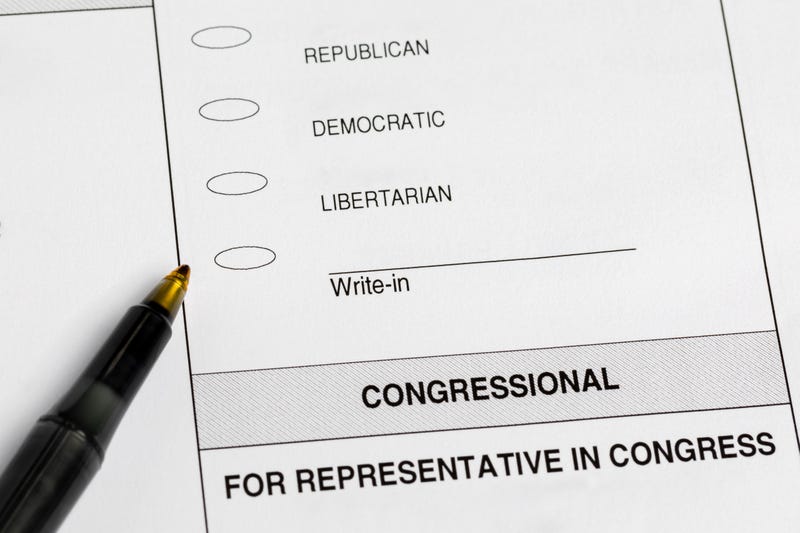
SOUTH JERSEY (KYW Newsradio) — Most voters are unhappy with the current two-party system in politics. A new poll finds the majority of voters in New Jersey want to bring back fusion voting.
Fusion voting allows smaller, fringe parties like the Working Families Party to endorse a Democrat or Republican by adding that name to a separate line on the ballot. This was a common practice long ago, but New Jersey and 42 other states scrapped it.
Fairleigh Dickinson University poll director Dan Cassino says fusion voting is seen as a way to give minor parties more of a say and, perhaps, moderate what happens with the major parties.
He says the survey found 56% of voters would welcome this back with open arms, with 32% opposing it.
Last year, a group of “self-described moderates” sued to overturn New Jersey’s ban on fusion voting in hopes of influencing the election in the state’s seventh Congressional district.
The group had hoped to nominate Democratic incumbent Tom Malinowski on the Moderate Party line, but he lost his re-election bid.
The poll shows support for fusion voting among New Jersey residents spreads across gender and political party lines, with 61% of Democrats, 62% of independents and 55% of Republicans in support. It also showed men are more likely to support the change than women, as men in favor totaled 62% and women, 51%.
“This is a change that’s been mostly pushed, in general, by people on the left, by progressives who feel that the Democratic Party machines in New Jersey are just not representing their views and almost want to push their party farther,” Cassino said.
Proponents of the change say it’s unconstitutional to say who a party can and cannot nominate for office and argued it would give voters more choices, push the parties to nominate more moderate candidates and that smaller parties should be able to nominate a major party candidate if they want.
“But this is actually something that’s been taken up by people on the right and we actually see that in the polling data,” Cassino added.
Opponents noted states have “long been allowed to pass laws to regulate their own election systems and most states ban two parties from nominating the same candidate.”
“The argument against fusion ticket laws has always been about maintaining stability,” Cassino said. “But when both sides are unhappy with the way their parties are going, that stops being a compelling case.”
Cassino says Moderates and the Working Families Party have both been fighting for fusion voting, but ultimately the lawmakers who have benefited from this current system would have to craft legislation to change it and that’s pretty unlikely.
He added that, if people really want fusion voting, they need to speak up and speak often.


